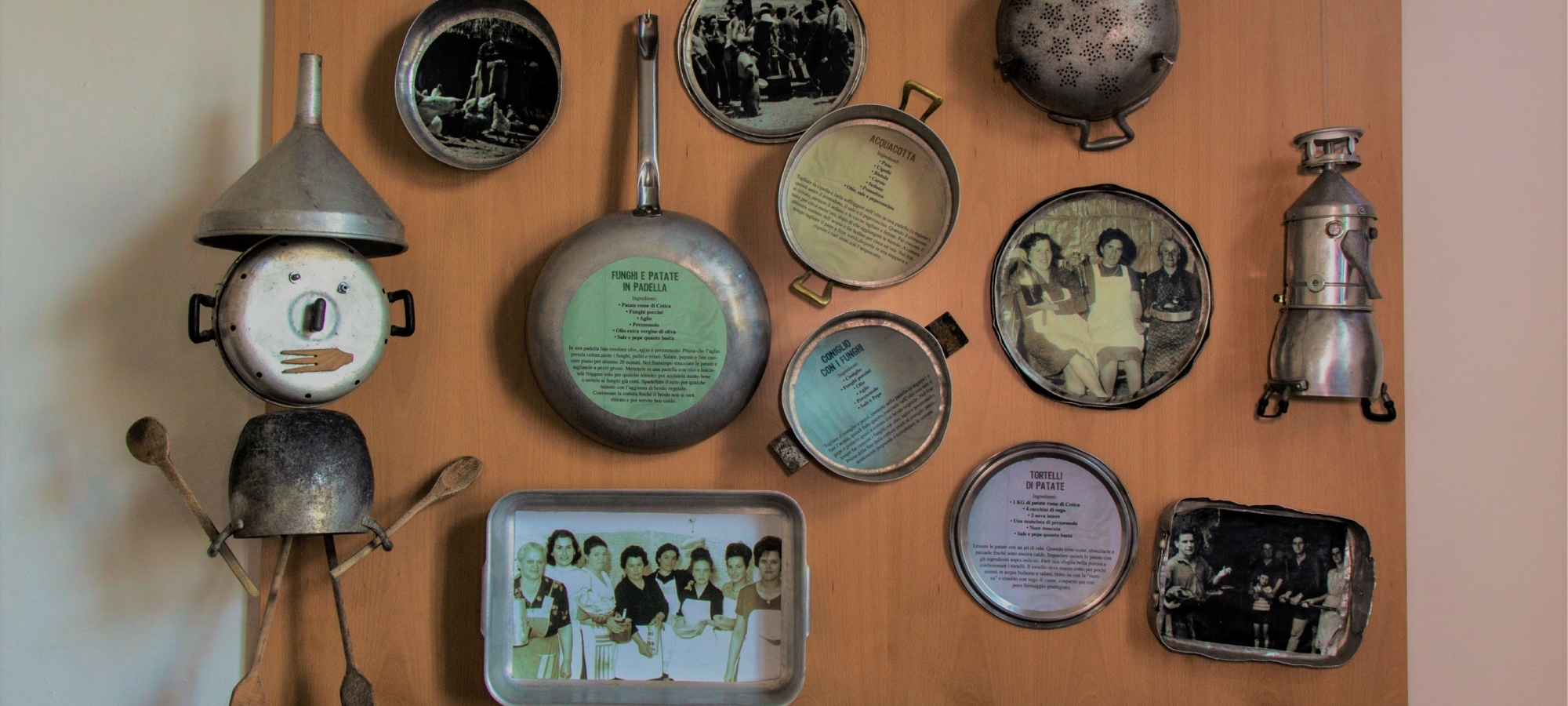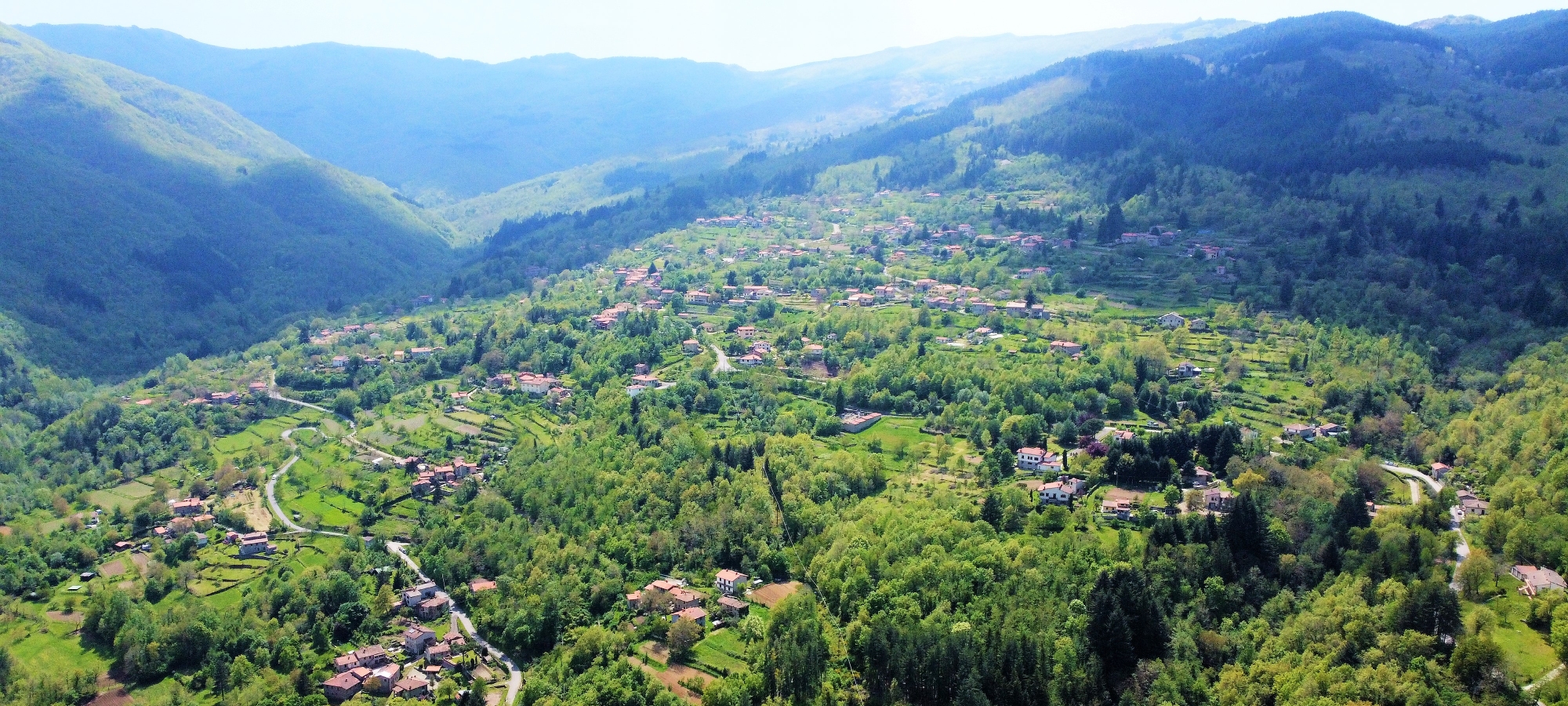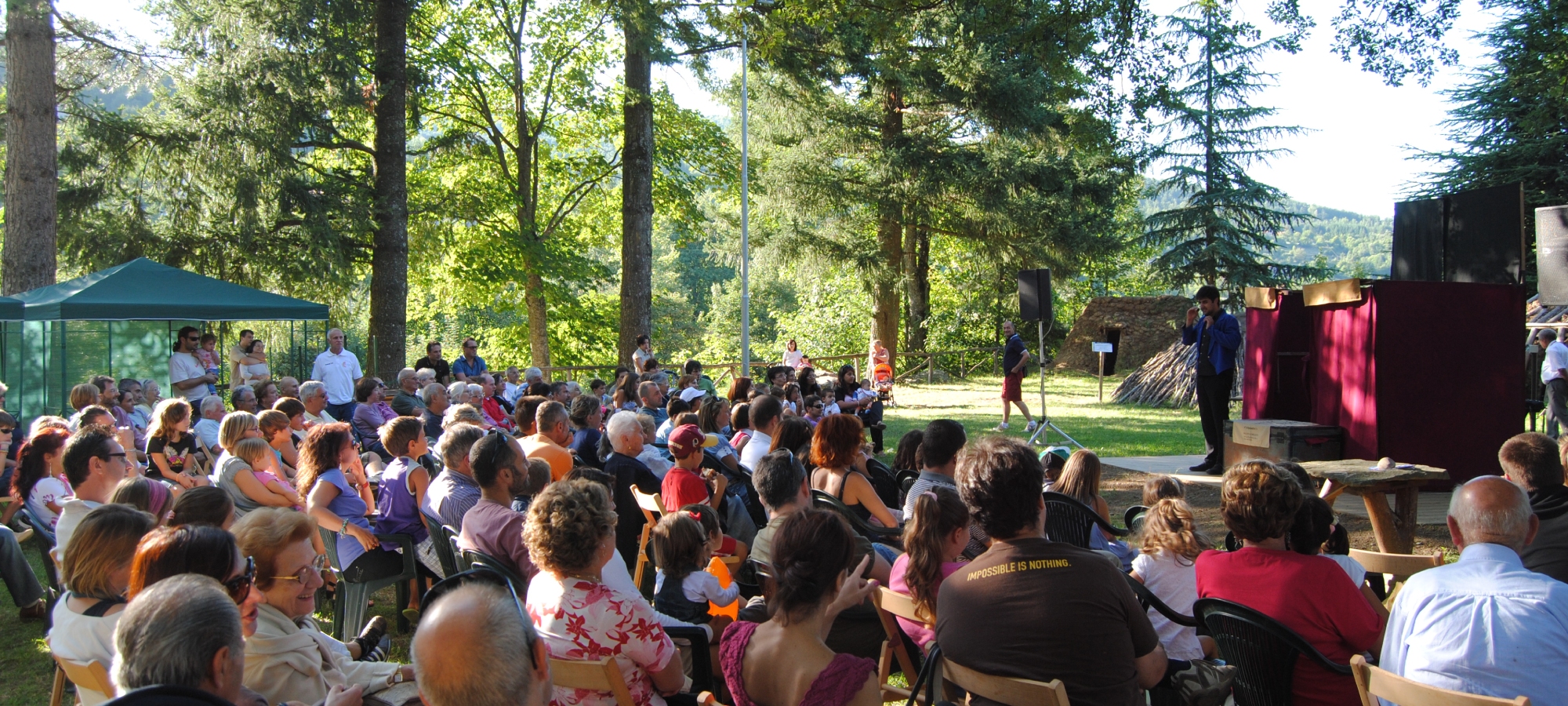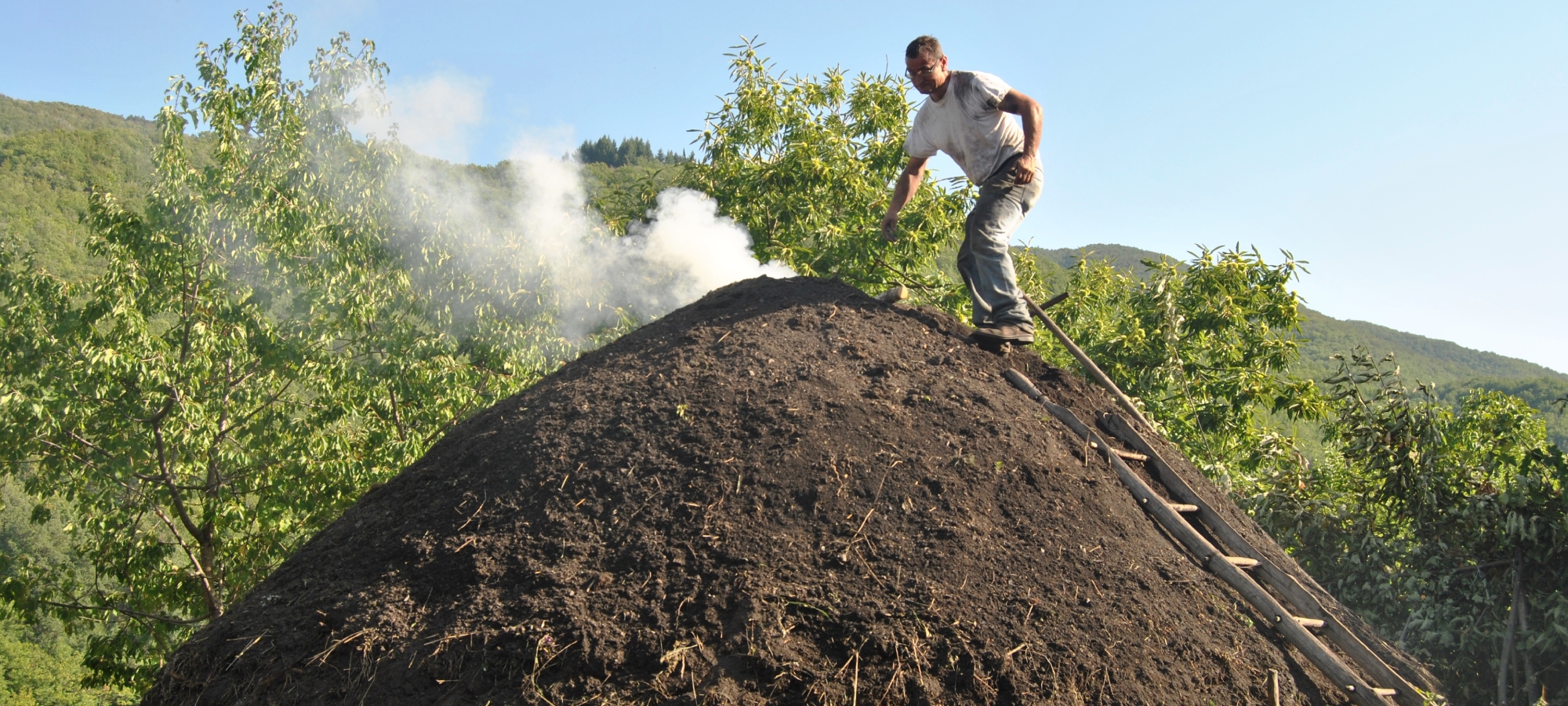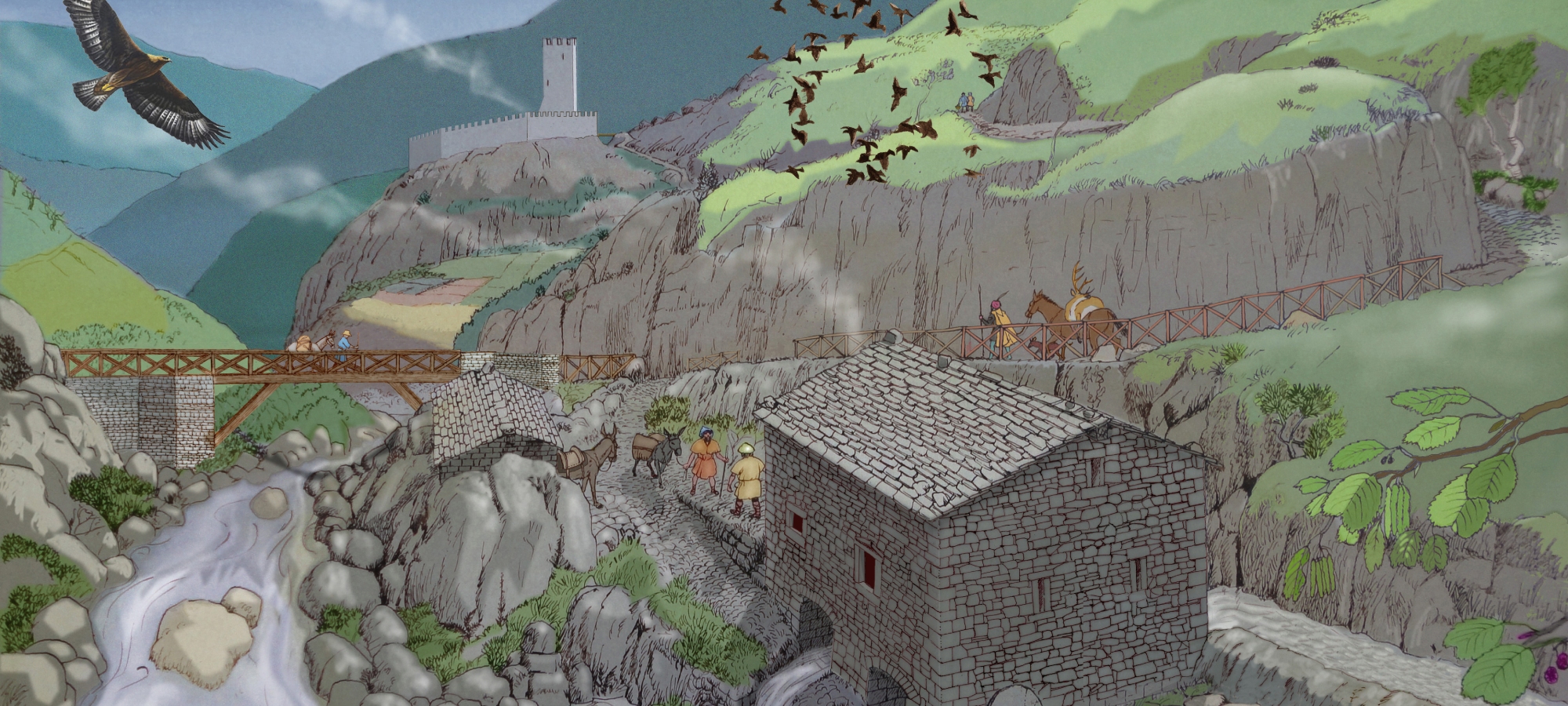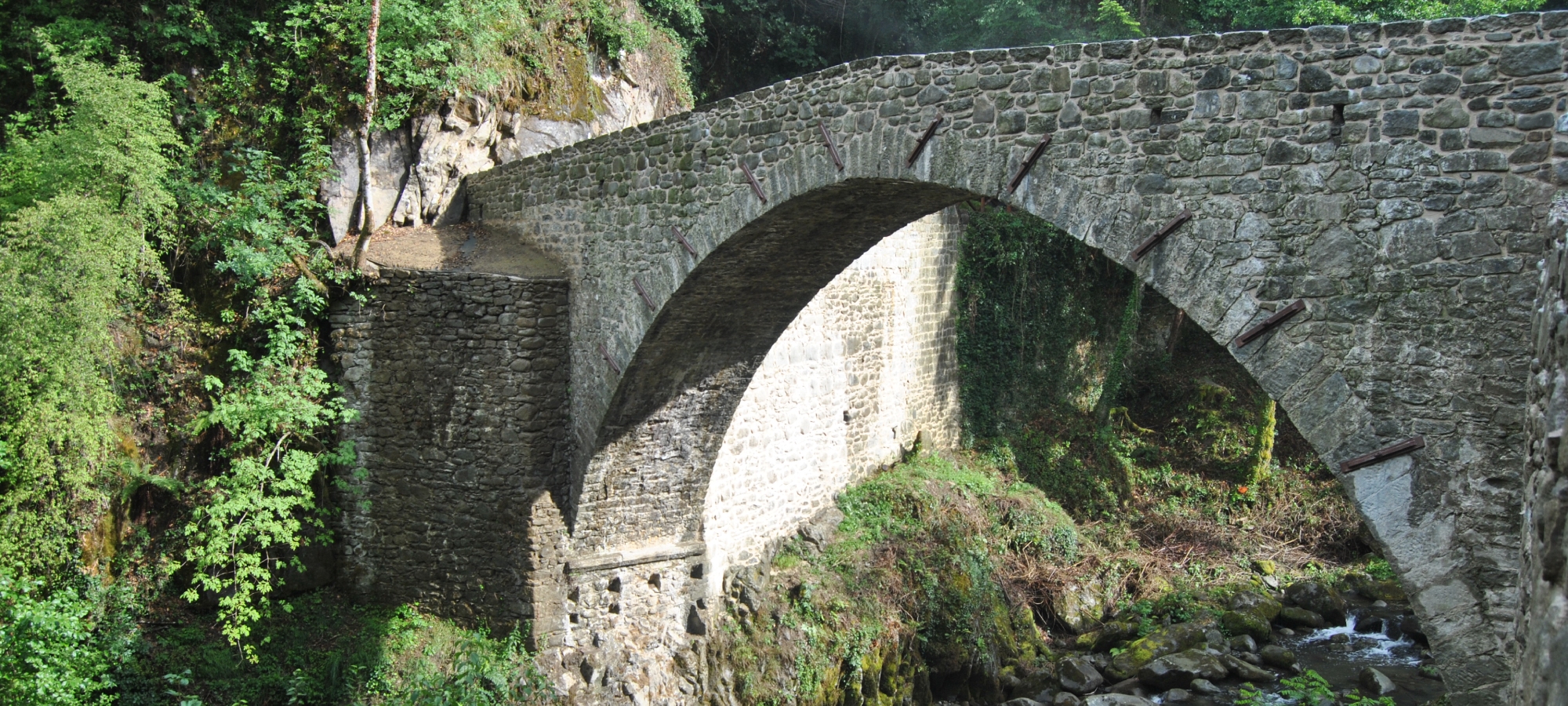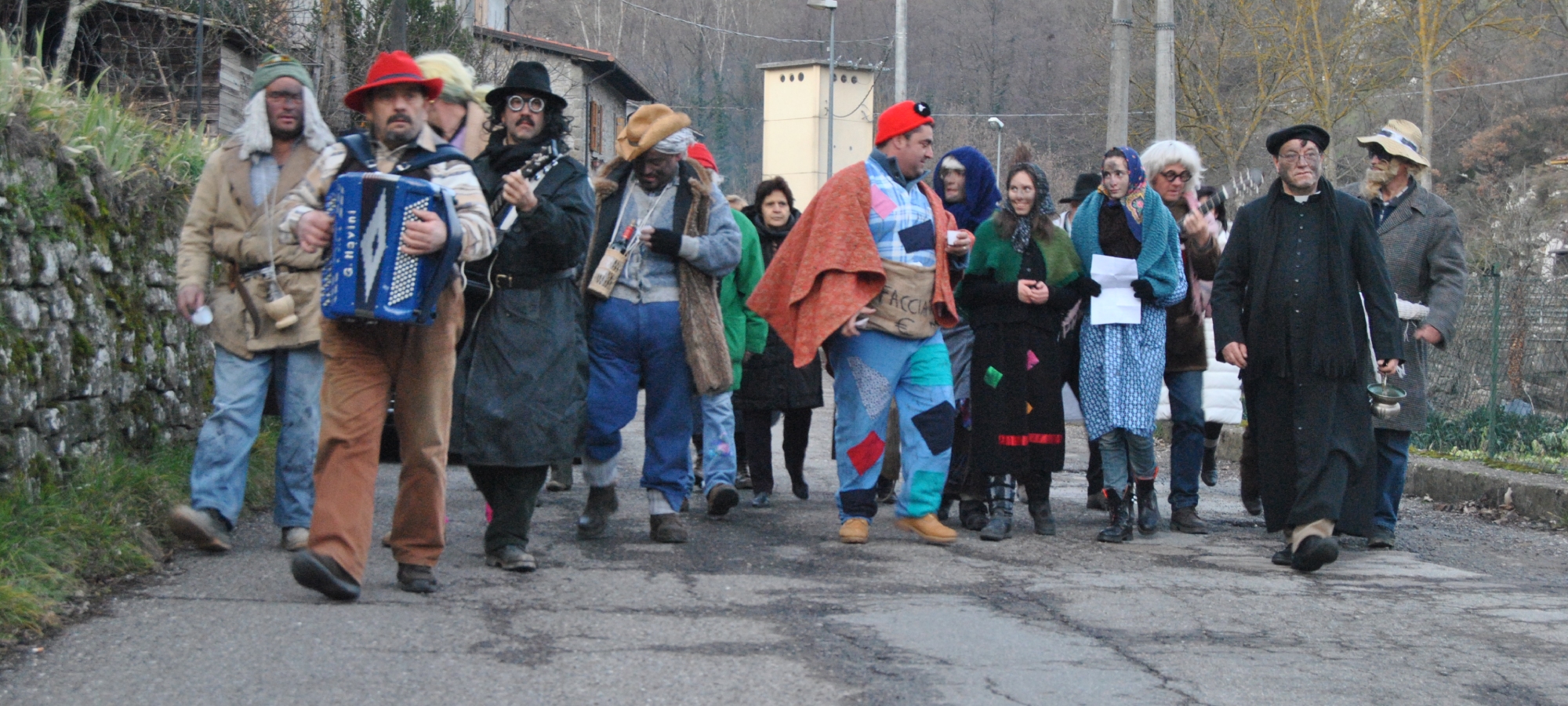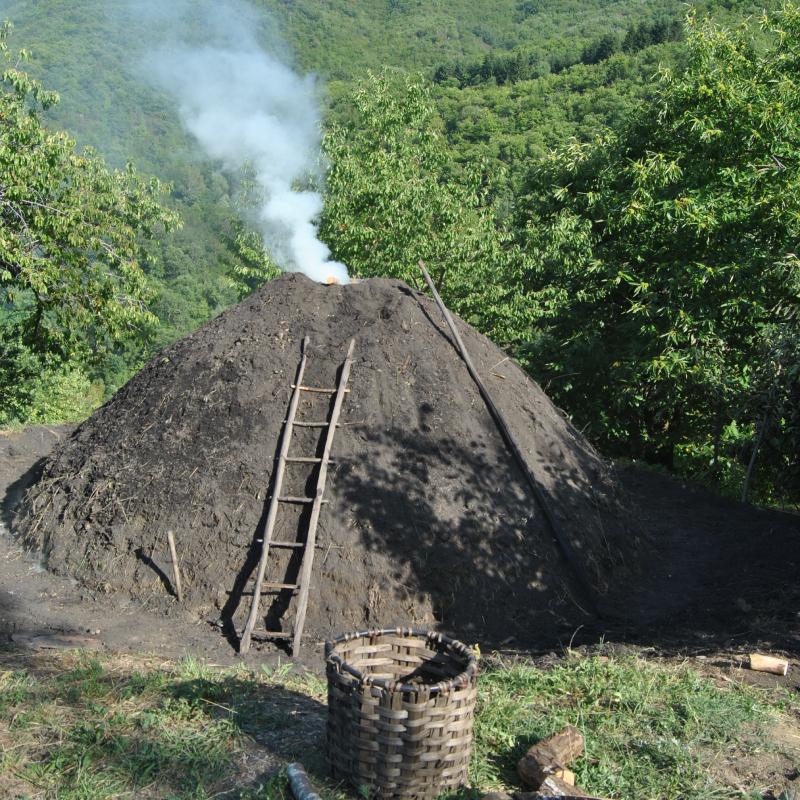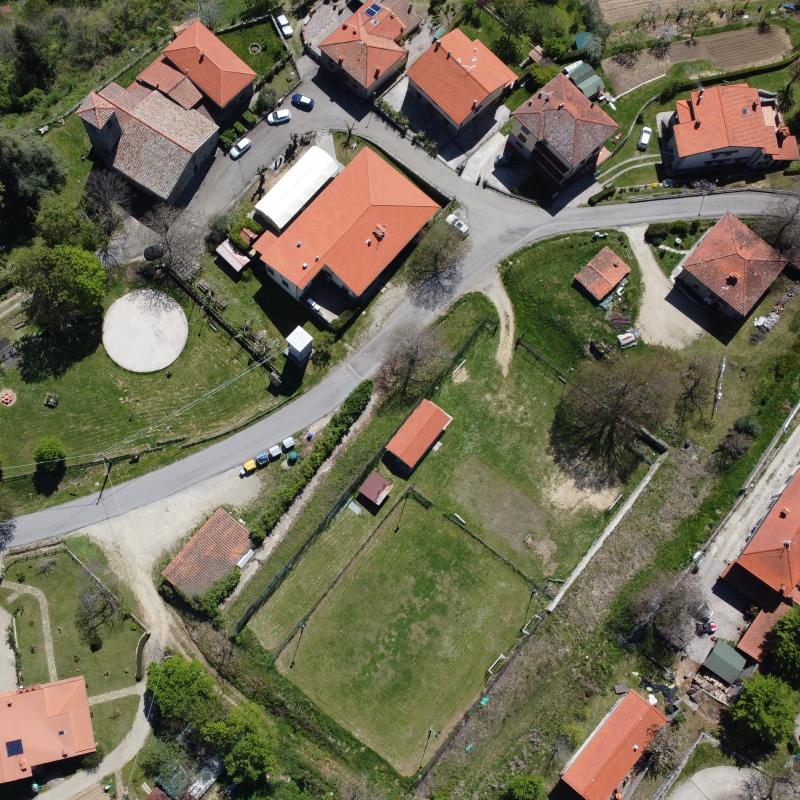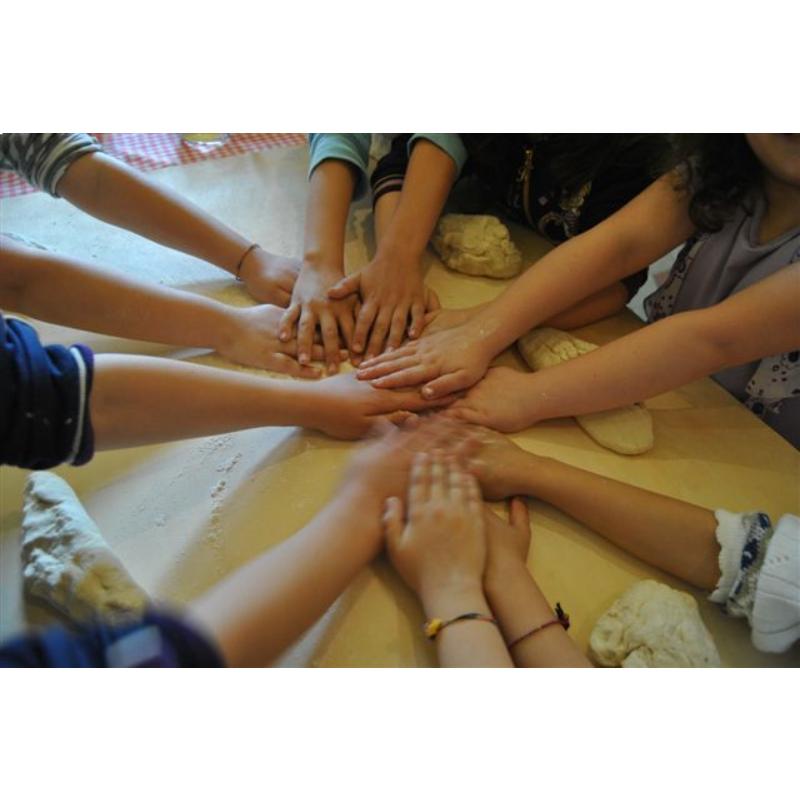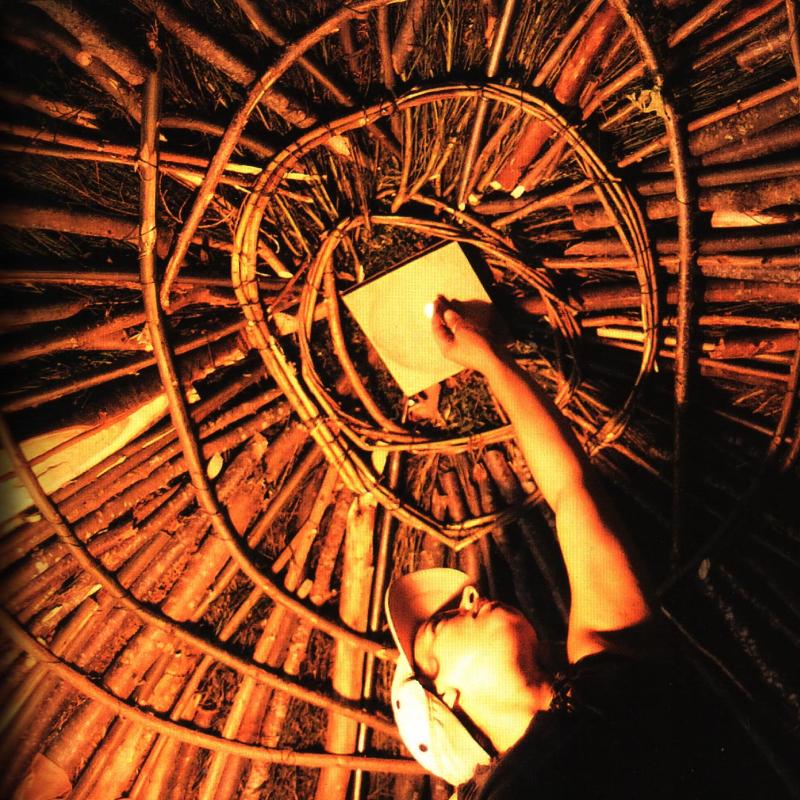ECOMUSEUM OF THE CHARCOAL MAKER – MEMORY BANK "GIUSEPPE BALDINI" - CASA DEI SAPORI
ECOMUSEUM OF THE CHARCOAL MAKER – MEMORY BANK "GIUSEPPE BALDINI" - CASA DEI SAPORI (HOUSE OF TASTE)
CETICA, CASTEL SAN NICCOLO’ AREZZO
ECOMUSEUM OF THE CHARCOAL MAKER – MEMORY BANK "GIUSEPPE BALDINI" - CASA DEI SAPORI
ECOMUSEUM OF THE CHARCOAL MAKER – MEMORY BANK "GIUSEPPE BALDINI" - CASA DEI SAPORI (HOUSE OF TASTE)
CETICA, CASTEL SAN NICCOLO’ AREZZO
- WHY VISIT?
-
To get to know at first hand a community that is still alive and proud of its traditions, where you can find traces of the rituals of the charcoal burner, the "black man". To understand how charcoal was made and savor the dishes based on the famous "red potato" and other local products of the valley, specialities of the "Casa dei sapori (House of taste)".
- LAYOUT AND PARTICULAR FEATURES
-
The Ecomuseum of the Charcoal burner of Cetica was set up to preserve the memory of a trade closely linked to the woods and its resources. Practiced also in places far from Casentino, woodcutting and the making of charcoal were important occupations for many mountain communities in the valley up until the mid-twentieth century. The particular techniques used have been passed down from generation to generation and are still used, mostly for educational or demonstrative purposes, in some villages of Pratomagno, such as Cetica. The complex world of the charcoal burner, the solitary life in the woods, the old fashioned attitudes and ways of life that were almost antagonistic to the civilized world, have inexorably come to an end. The Ecomuseum of the Charcoal burner is intended as an active history lab, where, as well as studying and preserving skills and stories of life experiences from the past, a new way of interacting with our present day environment can also be experienced.
The museum is housed in the premises of the old village school, facing the ancient Romanesque church of Sant'Angelo.
The visit itinerary is divided into four sections:
The trade of the charcoal burner
Inside the building there are two rooms with explanatory panels and exhibits of working tools which provide us with information and perceptions about the trade of the charcoal burner.
Multipurpose room: from the Memory Bank to the community
The multipurpose room for the projection of audiovisuals is also an integral part of the museum visit. The room has been conceived as a decentralized consultation space for the audiovisual archive kept at the "CRED - Bank of Memory of the Union of Townships in Casentino". Here it is possible to view various videos on material culture, silvo pastoral practices and popular traditions of the area.
The room also displays panels which, following the creation of the Community Map of the Upper Solano Valley, tell us about the particularities of the area and the community itself, from the revival of practicing certain forms of itinerant rituals to stories and legends.
PUBBLICAZIONE"The House of Taste"
Educational workshop and venue for food tastings aimed at the rediscovery of the flavors of days gone by. Panels illustrate local food products, especially the red potato of Cetica, an old variety that has been recuperated and is now safeguarded by the Cetica Red Potato Consortium.
Green Area: the charcoal burner's huts
The itinerary continues in the nearby green area where two log huts (one with a roof used as "a pantry" and one for sleeping in made in the shape of a tent) and a charcoal pit have been reconstructed for educational and demonstrative purposes by the Pro Loco.
- SPECIAL FEATURES AND CURIOSITIES
-
Important works of art that bring us back to the theme of the charcoal burner.
Inside the nearby church of Sant'Angelo, in the predella of the polyptych Madonna and Child with Saints attributed to Bicci di Lorenzo, in the Last Supper of San Giovanni Evangelista there is a depiction of a charcoal burner ... see if you can find it!
Did you know that D'annunzio, during his stay in Casentino in 1902, in the third book of his Laudi, Alcyone, left us an evocative passage dedicated to Pratomagno and its smoking charcoal pits:
Cade la sera. Nasce
la luna dalla Verna
cruda, roseo nimbo
di tal ch’effonde pace
senza parola dire.
Pace hanno tutti i gioghi.
Si fa più dolce il lungo
dorso del Pratomagno
come se blandimento
d’amica man l’induca a sopor lento.
Su i pianori selvosi
ardon le carbonaie,
solenni fuochi in vista.Evening falls. The moon
Is born from the raw Verna,
of such a rosy halo
that it effuses peace
without uttering a word.
All yokes have peace.
The long spine of
Pratomagno softens
as if the gentle hand
of a friend slowly induces sleep
On the wild plateaus
the charcoal makers burn,
solemn fires in sight.
FIXED APPOINTMENTS
If a museum reflects the local population, is a place where one can recognize one's roots and reconfirm one's identity, then educational presentations and cultural and gastronomic events are important in the transmission of culture. It is through exchanging and confronting with the outside world that the local population can confirm their role in the preservation and protection of the ancient knowledge and skills of the mountain people. Among the fixed appointments are: the commemoration of the Battle of Cetica (June), five-a-side tournament "Jessica Benevieri" (July), the Potato Festival more commonly known as Festa a Cetica (July), Lighting of the Carbonaia (August /September), Porcini Mushroom Festival (August /September), and Chestnut Festival (November).
ROUTES AND ITINERARIES, PLACES OF INTEREST CONNECTED TO THE STRUCTURE
Firstly, the Church of San Angelo in Cetica, located right in front of the Ecomuseum headquarters, is a real treasure trove of works of art. Further along, at the group of houses called "Casadoni" is the "square" where the charcoal pit is built annually. Just a few steps away near "Casenzi" you can visit the Romanesque bridge of Sant'Angelo, object of a specific recuperation and embellishment project. Finally, the churches of San Pancrazio and Santa Maria should also be noted.
INFORMATION AND OPENING HOURS
Opening hours: From 20 June to 30 September. Saturday and Sunday 15.30-18.30. Pro Loco "I tre confini (The three borders)": 339/2777155 - 393/3555059 - 333/8698532 proloco@cetica.it; www.cetica.it

